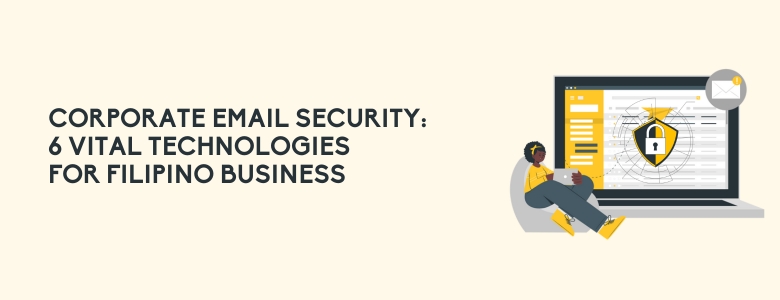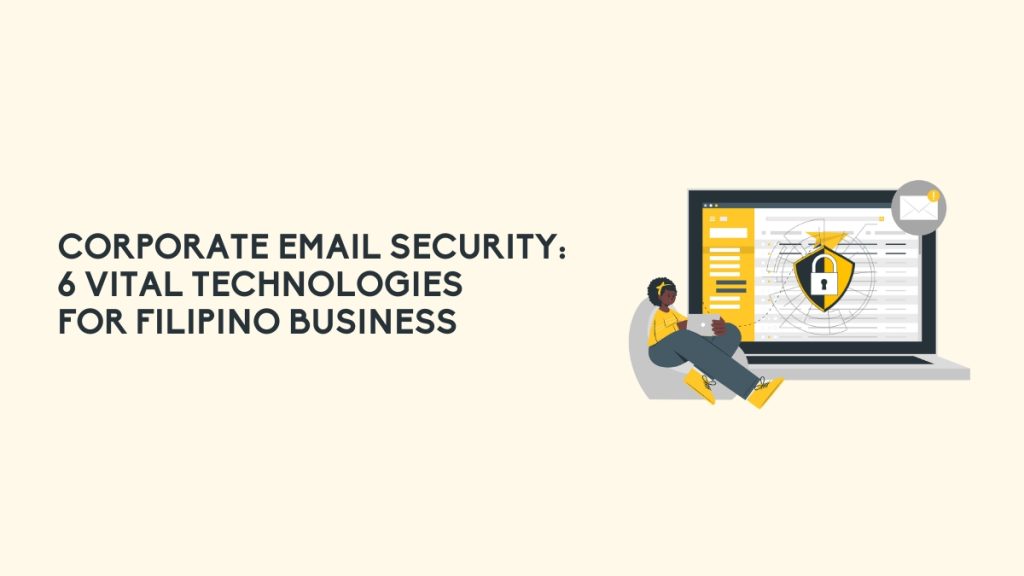
Protecting company emails is extremely important in today’s digital world, especially for businesses in the Philippines. Email is the main way we communicate, often sharing important information that needs to be safe from online dangers. Knowing more about corporate email security is crucial for keeping private data safe and ensuring people continue to trust the company.
The Significance of Corporate Email Security
In essence, corporate email security protects the privacy of data shared through emails. Strong security measures prevent unauthorized people from accessing sensitive information, reducing the chance of data breaches. This is especially important in fields like banking, healthcare, and finance where keeping data safe is crucial.
Confidentiality is central to corporate email security. Encryption technologies such as TLS and SSL protocols are important because they make email traffic unreadable to unauthorized users. This ensures that sensitive information stays private and safe from online threats.
Enhancing Email Security: Combating Data Breaches, Phishing, and BEC Threats
Data breaches can cause big problems for businesses, like losing money, hurting their reputation, and facing penalties. To prevent data breaches, authentication protocols like SPF, DKIM, and DMARC check who sends and receives emails, stopping fake emails and unauthorized access to accounts. Also, email filters and anti-malware software help find and stop harmful content, reducing the risk of data breaches by spotting and blocking suspicious emails and attachments.
Phishing attacks are a common threat where cybercriminals try to trick people into giving away sensitive information or clicking on bad links. It’s important for employees to be trained to spot these attempts and know what to do. Multi-factor authentication (MFA) makes email accounts safer by asking for multiple verifications, making it harder for unauthorized people to get in.
Another big threat is Business Email Compromise (BEC), where cybercriminals pretend to be trusted sources to get employees to send money or sensitive information. Training and strong security measures help reduce BEC risks and keep business assets and data safe.
Securing Email Communications in the Philippine Business Landscape
There is no one technology that can help prevent the myriad of different threat vectors that can be found through corporate emails. Depending on the threat, different technologies are used to help lessen the risk. Below is a list of technologies that can help, some of which were already mentioned above:
Encryption Technologies: TLS and SSL protocols facilitate secure transmission of email communications by encrypting the content, rendering it indecipherable to unauthorized parties.
Authentication Protocols: SPF, DKIM, and DMARC authenticate email domains and identify spoofing attempts, thereby ensuring the integrity of email communications and preventing unauthorized access.
Email Filtering Solutions and Anti-Malware Software: Advanced algorithms scrutinize email content to identify and quarantine suspicious messages containing phishing attempts or malware, thereby reducing the likelihood of security breaches.
Data Loss Prevention (DLP) Solutions: DLP solutions monitor outbound email traffic to forestall the unauthorized disclosure of sensitive information, ensuring compliance with regulatory requirements and mitigating the risk of data leakage.
Multi-factor Authentication (MFA): MFA adds an additional layer of security to email accounts by necessitating users to provide multiple forms of verification, thereby diminishing the risk of unauthorized access in the event of compromised credentials.
Incident Response and Forensic Tools: Incident response and forensic tools empower organizations to investigate and mitigate email security incidents effectively, ensuring timely detection and containment of threats to minimize potential damage.
In addition to technological solutions, employee awareness and training programs are indispensable in the Philippine business. As they rely more on digital operations and online transactions, they face unique challenges in keeping their email communications secure. By focusing on confidentiality, preventing data breaches, and taking proactive steps tailored to Philippine business needs, organizations can build strong email security. This helps protect against evolving cyber threats and maintains the trust in digital communications in the Philippines.
To learn more about the email security technologies or security tips, you can contact us at marketing@ctlink.com.ph and we would be happy to set a meeting with you today!

